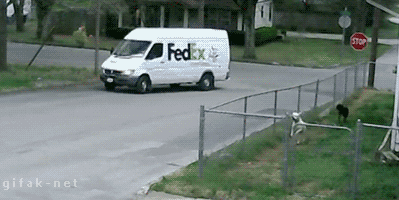FedEx is using AI-powered cameras installed on its trucks to help aid police investigations, a new report has revealed.
The popular postal firm has partnered with a $4billion surveillance startup based in Georgia called Flock Safety, Forbes reported.
Flock specializes in automated license plate recognition and video surveillance, and already has a fleet of around 40,000 cameras spanning 4,000 cities across 40 states
FedEx has teamed up with the company to monitor its facilities across the US, but under the deal it is also sharing its Flock surveillance feeds with law enforcement. And it is believed to be one of four multi-billion dollar private companies with this arrangement.
It's led critics to liken the move to rolling out a mass surveillance network - as it emerged that some local police forces are also sharing their Flock feeds with FedEx. Jay Stanley, a policy analyst with the ACLU, told the Virginian Pilot: 'There's a simple principle that we've always had in this country, which is that the government doesn't get to watch everybody all the time just in case somebody commits a crime.'
'The United States is not China,' he continued. 'But these cameras are being deployed with such density that it's like GPS-tracking everyone.'
In response to Forbes' report that FedEx was part of Flock's surveillance system, he told the outlet: 'It raises questions about why a private company…would have privileged access to data that normally is only available to law enforcement.'
He went on to bill it as 'profoundly disconcerting'.
Flock Safety's cameras are used to track vehicles by their license plates, as well as the make, model, and color of their cars. Other identifying characteristics are also monitored, such as dents and even bumper stickers.
Lisa Femia, staff attorney at the Electronic Frontier Foundation, warned that FedEx's participation could prove problematic because private firms are not subject to the same transparency laws as cops.
This, she told Forbes, could '[leave] the public in the dark, while at the same time expanding a sort of mass surveillance network.' Source

Comments
Post a Comment